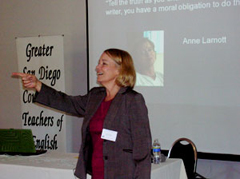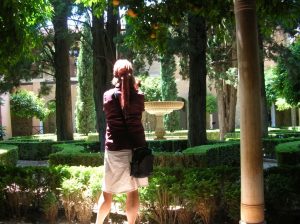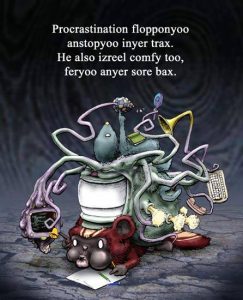I am reaching a crossroads this week. As of Friday, when my new novel PENELOPE’S DAUGHTER, is launched in an evening of drama and dance at San Diego City College, I will be the author of two works of historical fiction. Next May, with the publication of FINDING EMILIE, I will be the author of three.
Until now, as the author of one novel, when I get invitations to appear at events, it’s usually because people are interested in my novel THE FOUR SEASONS, and its subject matter, Vivaldi, Venice, and the famous all-female orchestra and choir of the Pietà. I’ve got a busy calendar this fall with events focusing on PENELOPE’S DAUGHTER and presumably I am headed for the same with FINDING EMILIE next year.
There’s a different focus now for me, though, and I am finding that I want to speak not only about individual books but about my work as a whole. I mean, of course, as far as the whole has reached to this point, with the completion of novel number four, THE SHAPE OF THE WORLD. I hope for many more to come and indeed the competition in my head among ideas for novel number five is pretty intense right now–but that’s another diary entry!
My sense of myself is evolving from being the author of particular books, to being an author person, by which I mean always fully both when I write. I’ve learned a lot about myself from writing these novels–what I believe deep down, how I think, how I perceive problems and solutions–because these are expressed in how I develop plots and characters.
particular books, to being an author person, by which I mean always fully both when I write. I’ve learned a lot about myself from writing these novels–what I believe deep down, how I think, how I perceive problems and solutions–because these are expressed in how I develop plots and characters.
People say all fiction is autobiographical, and it is, but not in the way people think. My books express fundamental things about who I am even though they are not my story. I want to talk about these bigger things now when I address audiences. What do my books add up to? What do they have in common? What do they say about my view of the world? What do they say that might be of interest about me as a person? Where do they come from? Why do I write? Why do I write what I write? Why do I not write what I don’t write?
It’s hard to do that as the author of one novel, although my one non-fiction trade book, UNTIL OUR LAST BREATH, helped me to develop a sense of myself as an author. But it’s with fiction that I have found where I want to be when I write, using my imagination and my professorial training to create smart reads, with meaningful messages bound up in great characters and stories.
What does it add up to at this point? What do I really have to say? I’ll be exploring that more in future entries here, as I use the words I have put on the pages of my novels as a means to grasp for myself, and for anyone else who is interested, what I think life has to say to me and to us.








